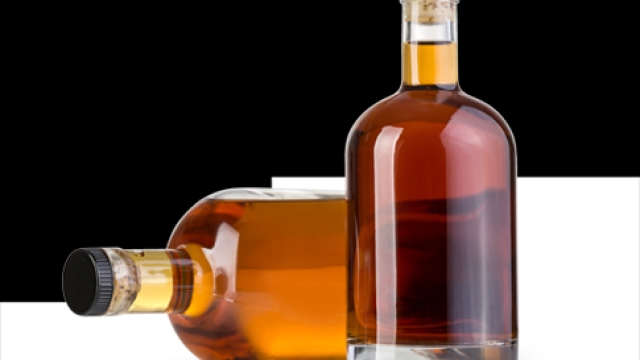Whisky, often hailed as the nectar of the gods, holds within its amber depths a captivating tale that has been woven through the fabric of time. This exquisite spirit has traversed continents, survived wars, and enraptured the senses of countless aficionados throughout the ages. With each sip, whisky tells a story, whispering secrets of the past and promising new discoveries to those who engage in its captivating journey.
Originating in ancient times, whisky’s origins are veiled in mystery. Some claim it was the Celts who first distilled this liquid gold, while others point to the Scottish monks as the progenitors of this magical elixir. Regardless of its true genesis, whisky’s essence lies in its meticulous craftsmanship. From the carefully selected grain to the patient aging process, each element contributes to the symphony of flavors that dance upon the palate.

Step into a distillery, and you will witness artisans working in harmony with time-honored traditions. Copper stills gleam in the flickering light, as the alchemy of fermentation takes place. Slowly, the liquid transforms, transcending its humble beginnings into an elixir of complexity and character. In oak barrels, whisky matures, absorbing the essence of its surroundings, be it the smoky peat of Islay or the gentle sea breeze of Speyside. Patience is a virtue in this realm, for it is the passing of time that bestows upon this spirit its true magnificence.
Join us as we embark on a spirited journey, delving deep into the world of whisky. From the vast Speakeasies in New York to the quaint distilleries nestled in the Scottish Highlands, we will uncover the legends, the techniques, and the distinguished personalities who have shaped and celebrated this cherished libation. So, raise your glass and let us unravel the tale of whisky, sip by captivating sip.
History and Origins
Whisky, also spelled whiskey, has a rich and fascinating history that dates back centuries. Its origins can be traced to regions such as Scotland, Ireland, and the United States, each contributing unique characteristics and techniques to the production of this beloved spirit.
In Scotland, whisky has a long-standing tradition that spans over 500 years. It is believed that Scottish monks were the pioneers in distilling whisky, using their skills to produce spirits for medicinal purposes. Over time, the techniques improved, and distilleries began to emerge throughout the country, each with its own distinct style and flavor profile.
Ireland, too, has played a significant role in whisky’s history. Irish whisky is known for its smoothness and triple distillation process, a method embraced by Irish distillers to create a more refined and gentle spirit. Irish whisky has its roots in ancient monastic traditions, similar to its Scottish counterpart, and has evolved into a much-loved spirit worldwide.
Across the Atlantic, in the United States, whisky production took a slightly different path. American bourbon, a type of whiskey, has become synonymous with the country’s identity. Its origins can be traced back to the early settlers who brought their knowledge of whisky production from Europe. Over time, the distinct bourbon style emerged, characterized by its high corn content and aging in new charred oak barrels, resulting in a bold and robust flavor profile.
Whisky’s history and origins are as diverse as the regions it hails from. From the Scottish Highlands to the Irish countryside and the American heartland, each has contributed its own unique traditions and techniques to the art of whisky-making, ensuring its enduring popularity and appeal to enthusiasts around the world.
Macallan 25
Whisky Production Process
Whisky production involves a meticulous and time-honored process that brings together science, craftsmanship, and tradition. Let’s explore the fascinating journey from grain to glass.
The process begins with malting, where barley grains are steeped in water, allowing them to germinate. Once they have sprouted, the germinated barley is dried using hot air, halting the germination process. This carefully controlled malting step activates enzymes within the barley, crucial for later stages of whisky production.
Next comes the mashing process, where the malted barley is ground into a coarse flour known as grist. This grist is then mixed with hot water in large vessels called mash tuns, allowing the enzymes to convert starches in the barley into sugars. The resulting liquid, known as the wort, is then transferred for fermentation.
Fermentation is a vital stage, where yeast is added to the wort, initiating the conversion of sugars into alcohol. This reaction takes place in large fermentation vessels known as washbacks. The yeast works its magic over several days, creating a liquid known as "wash." At this point, the wash contains alcohol, but it is far from the final product.
Varieties and Tasting Notes
When it comes to whisky, there is a vast array of varieties to explore. Each type offers unique tasting notes and characteristics that make it a distinct experience for enthusiasts to indulge in. From Scotch to bourbon, let’s delve into the diverse world of whisky.
Scotch whisky, often hailed as the epitome of tradition and craftsmanship, is made primarily in Scotland. Known for its robust flavors and smoky undertones, Scotch whisky can be further categorized based on the regions it hails from. From the peaty and smoky Islay malts to the lighter and fruitier offerings from the Lowlands, there is a Scotch whisky to suit every palate.
Moving across the Atlantic, we find ourselves in the realm of bourbon. This distinctive American whisky is characterized by its rich sweetness and notes of vanilla, caramel, and oak. Crafted predominantly from corn, bourbon undergoes aging in charred oak barrels, imparting a unique flavor profile that has captivated whisky lovers around the world.
Japanese whisky, although a relatively recent player in the whisky scene, has quickly earned acclaim for its impeccable craftsmanship and attention to detail. Embracing traditional Scottish distilling techniques, Japanese whisky showcases a delicate balance of flavors, often embodying both the elegance of Scotch and the refinement of Japanese craftsmanship.
From the peaty dram of an Islay Scotch to the smooth sweetness of a Kentucky bourbon, whisky offers a myriad of flavors to explore. Whether sipped neat, on the rocks, or incorporated into cocktails, the journey into the world of whisky is a spirited adventure that continues to captivate and delight connoisseurs worldwide.


